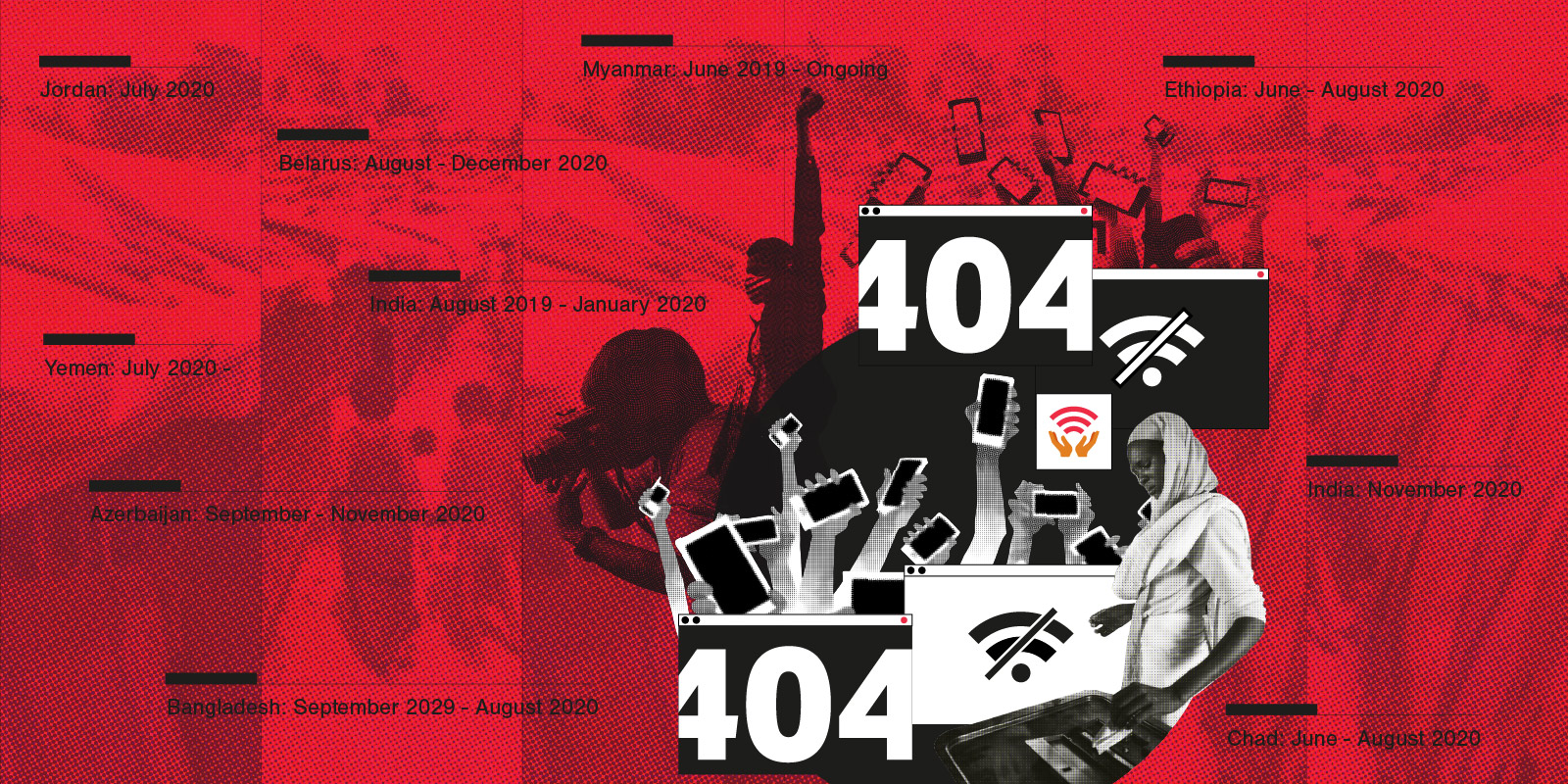On September 27, the government of Azerbaijan announced that it would restrict access to the internet throughout the country, alongside the eruption of intense fighting between Armenia and Azerbaijan over competing claims to the Nagorno-Karabakh border region and its seven adjacent territories.
Nagorno-Karabakh is a disputed territory in the South Caucasus with historical and cultural significance for both Armenians and Azerbaijanis. The region has been the source of tensions between Armenia and Azerbaijan since the beginning of the dissolution of the Soviet Union.
Even the day before the official announcement of internet restrictions, internet users in Azerbaijan started reporting reduced speeds making it difficult to access and share content — crucial for documenting human rights violations and humanitarian concerns — and to update websites — making it difficult for journalists to publish breaking news. Government websites with a gov.az extension were also temporarily inaccessible.
People have reportedly experienced problems accessing social media, and OONI Measurements results indicate reduced access to services such as Facebook, WhatsApp, Telegram, Twitter, and Skype.
Some of these services were accessible through the use of VPNs, but state news agencies and ISPs connected to the government have actively discouraged people from using VPNS, warning they can be “dangerous,” and rumors have spread about potential fines for using VPNs.
A recent Bloomberg report showed U.S. company Sandvine (also known for its involvement in Belarus’ shutdowns) has been supplying censorship technology to the Azerbaijani government, along with other repressive regimes, including Russia, Turkey, and Sudan. It is not yet clear if the current shutdowns in Azerbaijan have been implemented using Sandvine’s technology.
Internet shutdowns restrict access to vital information, prevent people from communicating with loved ones, limit the effectiveness of emergency responders, and suppress reporting of human rights violations. Especially during times of conflict and unrest, dependable internet access can help civilians access credible information which can be the difference between life and death.
Civilian populations are facing extremely dangerous conditions, including the reporting of cluster munitions — an illegal form of aerial bombing that scatters hundreds of small explosives across a wide area, creating a similar effect to landmines and inflicting massive, long-term casualties. The internet shutdown prevents people from accessing the information they need to keep themselves and their loved ones safe, and makes it very difficult to get accurate information about the casualties in the conflict. The range of the conflict has now extended beyond the contested region, further heightening the risk for everyone affected by the nationwide shutdown.
The Azerbaijani government — led by President Ilham Aliyev, who took power in 2003 after his father ruled for more than a decade — has a long history of suppressing the free flow of information and silencing critical voices. Just last month, police arrested dozens of protesters rallying against the imprisonment of a high-profile opposition leader. Ahead of the 2018 election, independent media outlets and civil society groups faced an onslaught of online attacks attempting to silence their dissent, and Azerbaijan has a growing record of internet shutdowns and slowdowns during moments of heightened political sensitivity.
The Azerbaijani government, along with internet and telecom service providers and other essential services, must immediately restore unrestricted access to the internet across all networks, including lifting any restrictions on the use of VPNs.
Research shows that there is a relationship between internet shutdowns and indiscriminate violence during war and conflicts. We encourage the OSCE Minsk Group peace negotiations process to include discussions of impermissibility of internet shutdowns to suppress access to information and freedom of expression during the current conflict and beyond.
Affected by the internet shutdown? Share your story
If you are in Azerbaijan and have been impacted by the shutdown, we encourage you to share your story with us. You can help strengthen our research and advocacy efforts, inform international media outlets about the negative impact of internet shutdowns, and provide evidence for the global battle against censorship in forums like the United Nations.
Kindly use this form to share your shutdown story. Don’t hesitate to reach out to us. We are listening.
